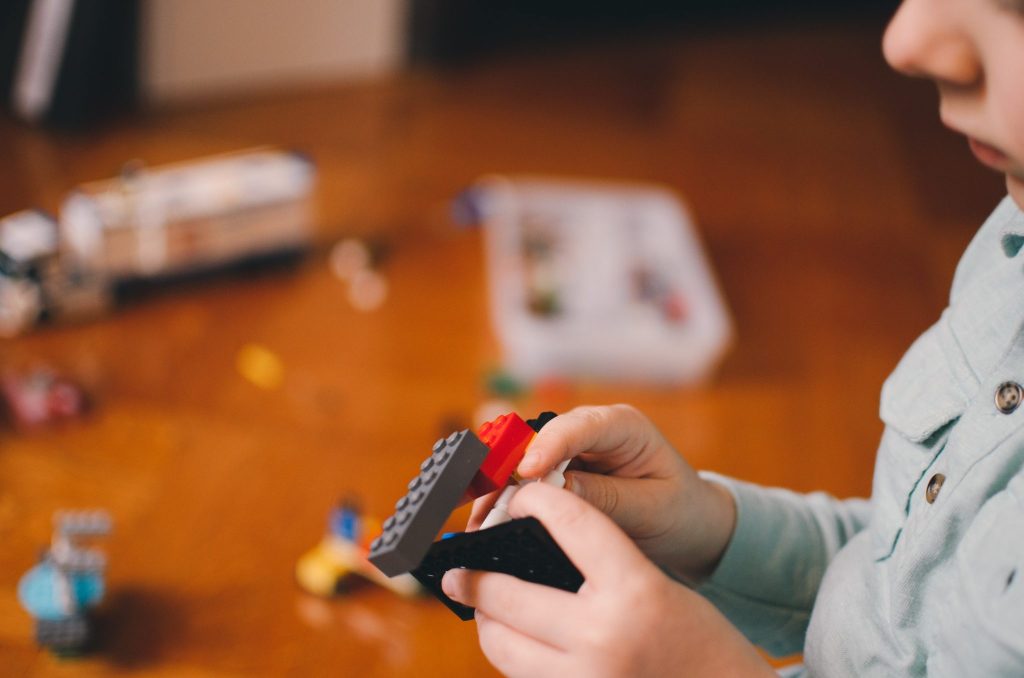I came a bit too late, to digest the entire story, the mother was concerned about her child’s frequent and sudden outbursts which involve flipping tables and chairs.
I came a bit too late, to digest the entire story, the mother was concerned about her child’s frequent and sudden outbursts which involve flipping tables and chairs.
“I am going to change a person’s life.”
Arrogance disguised as naivety? Idealism disguised as virtue? Heroism disguised as an unattainable goal? There is a common theme and narrative amongst those who join any profession which helps people help themselves — and that is change. We are in the business of change. Change in a dynamic manner; a continual process of reciprocal growth or detriment. I throw that last word in there because many times we, even those in the business of help, inadvertently do more harm than good.
“Do I even belong here?”
“Is this person even going to think I’m qualified?”
These thoughts ran through my head as I sat in my first psychological evaluation. I interrupted the semi-structured interview with the parent and seated myself across a 9-year old who was exhibiting some behavioral concerns. He was shy at first, pretending to be engaged in his Nintendo console, which wasn’t even working. “Who are these strangers?” he must have been thinking. A near 6 feet tall White woman who is very sharp and smiles often at me, and a slightly shorter brown man with a ponytail and leather shoes. “Did I do something bad? Why am I back in school over summer break?” Or probably of most dire consequence, “Why won’t my Nintendo Switch work?!”
I came a bit too late, to digest the entire story, the mother was concerned about her child’s frequent and sudden outbursts which involved flipping tables and chairs. She kept reinstating that she needed help. “No” she reinstated forcefully at one point. “I need psychological help.”
There is a connotation behind these words. Perhaps a teacher or school principal can clarify the academic or disciplinary problems that have been disrupting the classroom environment. Even a physician or pediatrician can help clarify whether certain medications may momentarily alleviate problems. However, the mother wanted a why.
“He who has a why to live, can bear almost any how.”
Nietzsche
Why was her son, unlike the others in his class? Why was such a smart boy receiving such poor grades? Why were her time-outs and punishments not enough to correct his bad behavior? Why could no one on God’s green Earth explain the mechanisms of these problems and present logical steps to rectify them?
The answers to these abstract equations bear no precise mathematical solution. They cannot be answered in a two-hour consultation, let alone with two first-year Psychology graduate students. We may diagnose symptoms of ADHD or Conduct Disorder, or lack of sleep or lack of prosocial relationships, or lack of structure in the classroom, and on and on. We may even collect enough data and information to have complete rationale and reason for presenting the case for why we think this may be, but may completely miss the arrow by losing sight of even a single detail or failing to account for some trauma or event that was never mentioned during the interview. This is good enough. I want to make that clear before I proceed; the job of people who empower individuals bears less with the why in this equation than with the how.

Yes, you may have behavioral and academic concerns. How can we as psychologists better help your parents, community and you as an individual do better? Yes, you may feel inadequate in front of your classroom and peers. How can we as professionals understand your thought processes to help you better navigate the complexity of your environment? Yes, you may even have thoughts of harming yourself and suicide. How can we, as those in the business of change, employ our skills to form a well-embedded safety net so that the ecological forces of your world prevent you from ever practically carrying out such a harrowing task?
“The boys in class throw papers at me and never leave me alone.”
I was expecting something different. My own preconceived biases of ‘troubled children’, coupled with the fact we were in a very low socio-economic community in Southeast Houston. I was expecting the kid to get frustrated with his Nintendo Switch, and throw it across the room or completely close down and stare at the floor in unemotional silence. I was expecting my own expectations.
My colleague took the mother outside to brief her on a couple of measures and questionnaires she could answer, while I spoke with her son. I sat alone from him and stumbled on my first few words. I was nervous. I had prepared for a week on my own individual case and due to circumstances (my client forgetting to show up) was sitting in front of a strange boy that I did not know of. What were his grades? Had he been suspended? Did he have a diagnosis? What sort of services was he receiving from the school? What collection of behavioral concerns were in his case file? Was he a ‘good’ kid in bad circumstances or a ‘bad apple’ through and through?
I was revising, re-editing, processing, and inspecting every thought I had in my head; would it be enough to communicate to this boy that I was here to help? How can I let him know that? He kept ignoring anything I said, intently glued to the Nintendo console.
“You like playing card games?”
This was the first moment he looked at me for longer than a few seconds. If his game stimulus wasn’t going to reinforce the pleasure pathways in his brain, then perhaps playing a simple round of UNO may suffice.
“I brought some cards and some board games. How about you choose any one of them and we can play together. How does that sound?”
This was a bright young boy; his laugh and smile were contagious. His answers were thought-provoking, daring, and honest. We were trying to splice serious questions about bullying, self-harm, and how he felt in-between casual chit-chat about UNO and video games. Although it was obvious he would rather laugh and play in a silly manner, then answer these serious questions of depression, alienating circumstances, bad people in the world, and what he could do to change this.

I couldn’t blame him for his reluctance to answer. Who would want to face such a dilemma? How many times do we self-reflect throughout our day and ask the most pertinent of questions dealing with our own mental state and position in life? Perhaps a few; how many times do we come up with straight-forward answers to combat these 100-foot monsters that exist within our psyche? Perhaps a few; how many times do these solutions ever manifest in any sort fruitful and sustaining change and maintenance? Research indicates very little.
The trouble exists in the fact that we choose to do this as a one-player solo-op mission. We are averse to help due to lack of follow-through, lack of any clear answers, lack of any concise guidelines, and inability to honestly assess whether all the help in the world will change what is inherently flawed in us. We should not think this way. We have to remember that even when we are at our most alone, we are reminded in the Qur’an:
“Fear not, Indeed I am with you, I hear and see”.
(20:46)
So let us ask for help and break the nafs which keeps us from seeking advice and wisdom. We should never choose to try and decipher the intricacies of mental health and psychopathic symptoms on our own.
The boy gave me a big hug at the end and said “enjoy your summer” with a big smile. There was no good kid, bad apple, mad city, or any list of variables to precisely answer for the circumstances that had brought he and I together in an emptied-out room during summer break for a psychological evaluation. We all need help. I can choose to rely on my own understanding of the world to try and navigate the complexities of society. It won’t work. We are inherently flawed. We have limited capabilities and even more limited capacities. The prescription of help that one chooses to adopt, will probably only be utilized to its half potential, if even that (search up medical adherence if you don’t believe me). Our capacities tarnished by a pessimistic glance on our own capabilities. An infinite negative feedback loop; we don’t get help because we are not good enough and we are never good enough because help never reaches us.
“You presume you are a small entity, but within you, lies the entire universe.”
Imam Ali
Not only are we good enough, but there exists a capability; a spirit lying dormant within us that can take us to transcendental potentialities. But we cannot get there unless we first fix the vessel in which the soul lays in. So let us take care of our physical, emotional and mental health so that our spiritual self may soar.
You can subscribe or watch more of my content on the official ‘Psychology/x/Spirituality’ Channel here.





